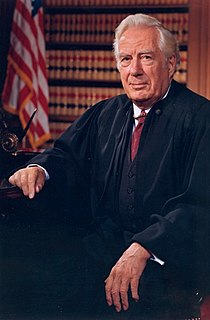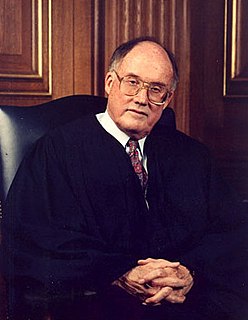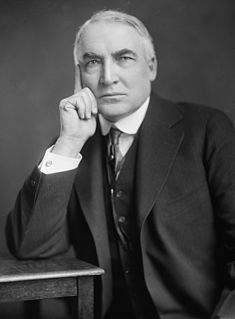A Quote by Warren E. Burger
The State may justify a limitation on religious liberty by showing it is essential to accomplish an overriding governmental interest.
Quote Topics
Related Quotes
If you begin acting contrary to the public's interest, and there is no alternative governmental model, with which you're willing to engage, we, the people, will have to put forth our own extra governmental models and methods of trying to restore the balance of liberty to the liberal tradition of Western society.
Whenever a single definite object is made the supreme end of the State, be it the advantage of a class, the safety of the power of the country, the greatest happiness of the greatest number, or the support of any speculative idea, the State becomes for the time inevitably absolute. Liberty alone demands for its realization the limitation of the public authority, for liberty is the only object which benefits all alike, and provokes no sincere opposition.
The issue of religious liberty is absolutely critical. America was founded on three different types of liberty: political liberty, economic liberty, and religious and civil liberty. It's remarkable that, one-by-one, these strands of liberty are coming under fierce attack from the Left. And that's particularly ironic because "liberal" derives from a word which means "liberty," the free man as opposed to the slave. This liberalism which we're saddled with today isn't a real liberalism at all, but a gangster style of politics masquerading as liberalism.
I see no other conceivable strategy for the achievement of liberty than political action. Religious or philosophical conversion of each man and woman is simply not going to work; that strategy ignores the problem of power, the fact that millions of people have a vested interest in statism and are not likely to give it up.... Education in liberty is of course vital, but it is not enough; action must also be taken to roll back the State.
Religious-liberty protections are one way of achieving civil peace even amid disagreement. The United States is a pluralistic society. To protect that pluralism and the rights of all Americans, of whatever faith they may practice, religious-liberty laws are good policy. Liberals committed to tolerance should embrace them.
Everyone talks about religious liberty, but no one believes it. So let us be blunt about it: we must use the doctrine of religious liberty to gain independence for Christian schools until we train up a generation of people who know that there is no religious neutrality, no neutral law, no neutral education, and no neutral civil government. Then they will get busy in constructing a Bible-based social, political, and religious order which finally denies the religious liberty of the enemies of God.
There is not a truth to be gathered from history more certain, or more momentous, than this: that civil liberty cannot long be separated from religious liberty without danger, and ultimately without destruction to both. Wherever religious liberty exists, it will, first or last, bring in and establish political liberty.


































